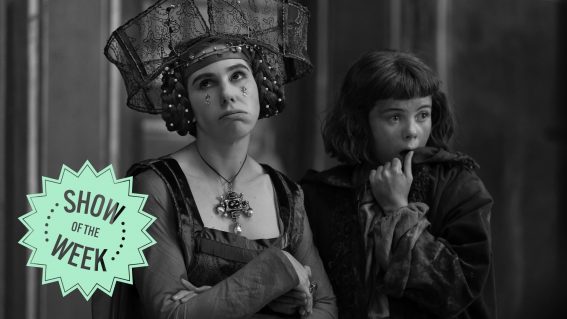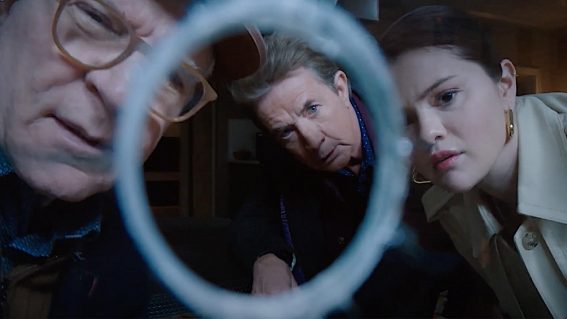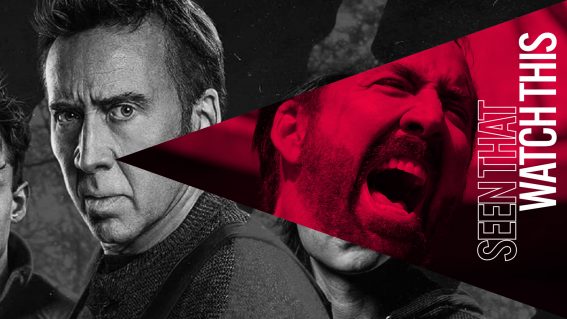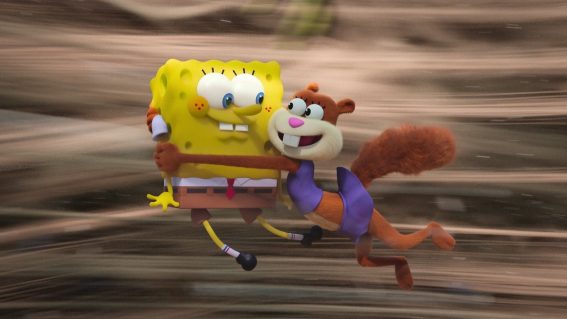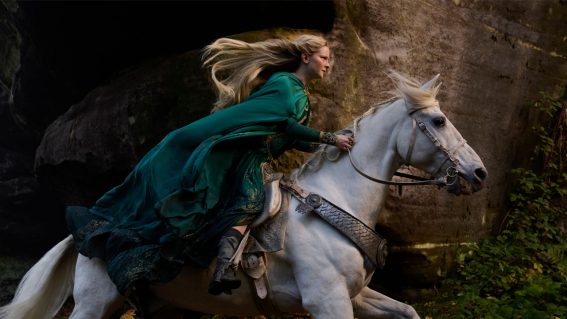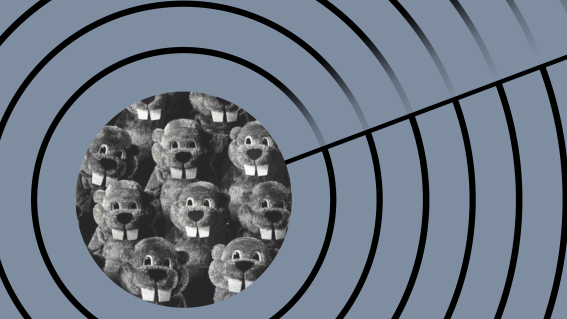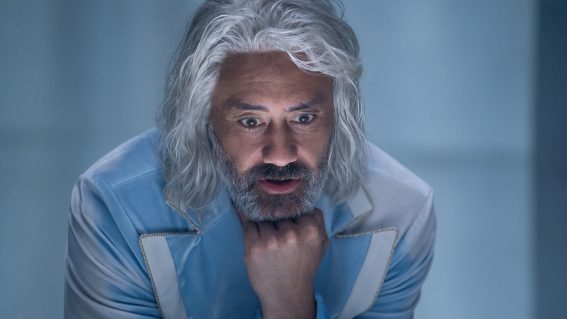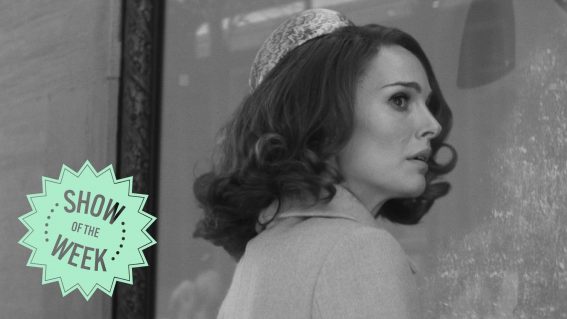Madeleine Sami clues us in on her hilariously hardcase cop in crime comedy Deadloch
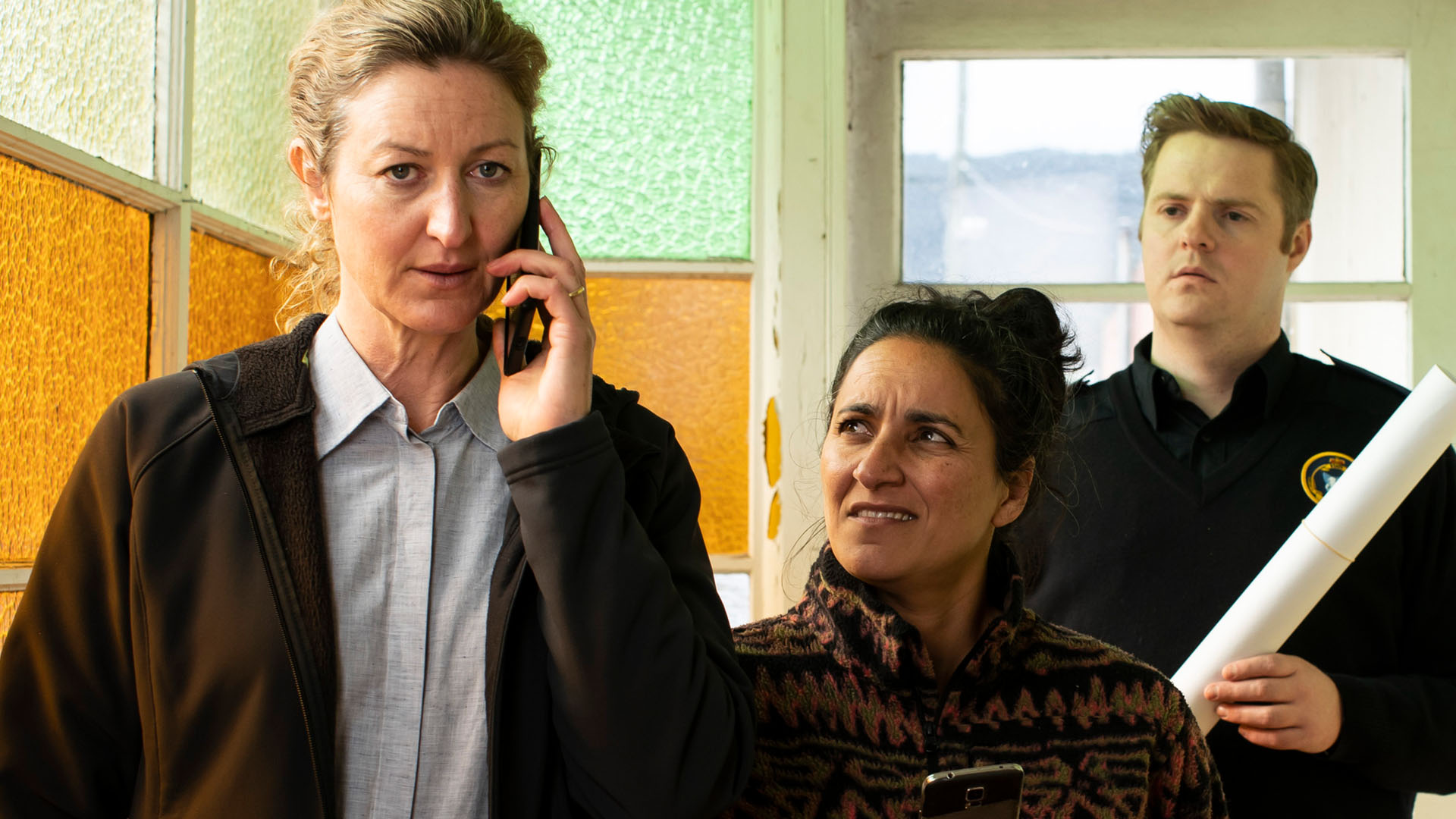
New comedy-mystery series Deadloch sees two vastly different detectives – played by Kate Box and Madeleine Sami – thrown together to solve a murder in a sleepy seaside Australian hamlet. Sami chats with Amelia Berry about playing such a loose unit, one that’s more than just a gender-flip of a classic cop archetype.
Something sinister is happening in Tasmania. Death, lesbians, a flesh-eating seal… no, it’s not survivalist reality sensation Alone Australia. This is Deadloch, the new black comedy/Scandi-noir from Kate McCartney and Kate McLennan (affectionately known as The Kates). Though the set-up is familiar—big city cop with a chequered past teams up with small town detective to solve a gruesome crime—the execution is superbly subversive. I spoke with co-lead Madeleine Sami (The Breaker Upperers, Super City), to talk about what makes the series tick.
“She’s a lovable cunt, and sometimes… a not so lovable cunt,” says Sami about her character, Eddie Redcliffe. Eddie is the aforementioned Big City Cop, sent to the town of Deadloch, Tasmania from sunny Darwin. She’s arrogant, swears like a sailor, and dresses like the morning after a particularly full-on Jimmy Buffet concert. Think somewhere between dirtbag Elliott Gould in The Long Goodbye and Kath’s deadbeat ex in Kath & Kim… but 5’4.
“This character’s typically played a lot by men in film and television,” Sami goes on, “I think that what’s fun and what’s interesting about this is to get to play a character like Eddie, who’s just that hot-headed, aggressive, kind of masculine energy. You very rarely get to see women portray characters like that on screen, so that was so exciting, to get to be just a really loose unit.”
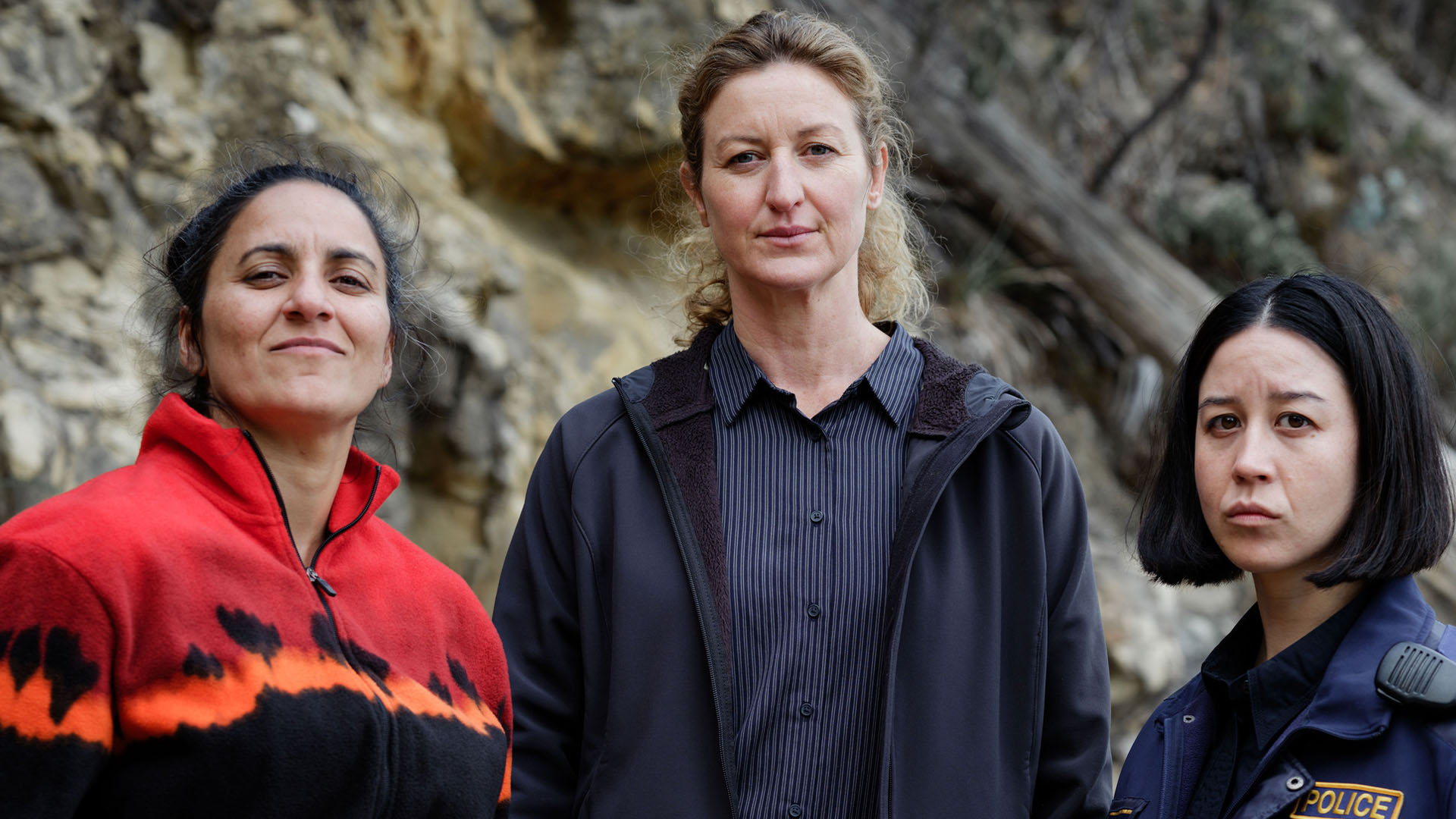
More than just a gender-flip of a classic cop archetype, Eddie’s unhinged hardcase energy feels like a very classic antipodean type. “She’s someone’s auntie, or some random that you get stuck into conversation with at a pub one night, or she’s the person that took you for your driving lesson… I definitely had her inside of me to bring out. And you know, you don’t often see her on screen.”
It’s a role that feels against type for Sami and—despite starting out as a writer on Deadloch early in production—she was surprised to find herself in the role of Eddie. “When they asked me to audition, I thought it was a joke, ’cause I didn’t even picture myself as that character,” she says. “And I auditioned, actually, for the two leads, so I auditioned for Dulcie as well, and to be honest, I put more effort into the Dulcie character audition. She had a lot more lines, and I was like ‘yeah, maybe I feel like doing a little bit more of a dramatic role’, and a queer role as well, and I didn’t put much effort into the Eddie character audition at all… But turns out, that was the perfect energy to get the part, the least amount of effort possible.”
While the audition may have been ‘low-effort’, the role itself sounds a lot more demanding. “Like, my body’s tense a lot, cause she’s just aggressive, she’s ready for a fight, she’s ready to, fight for justice, literally. She’ll knock someone out to get a clue.” Sami says, laughing. “I keep telling everyone, my character key was… I was very ‘gunt forward’ with Eddie… But yeah, just holding the tension the whole time. So it did take a lot out of me physically, which I didn’t realise at the time cause you’re on a lot of adrenaline. And it wasn’t until I kind of got back to New Zealand and was like ‘I think I need to lie flat and not talk to anyone for about two months.’”
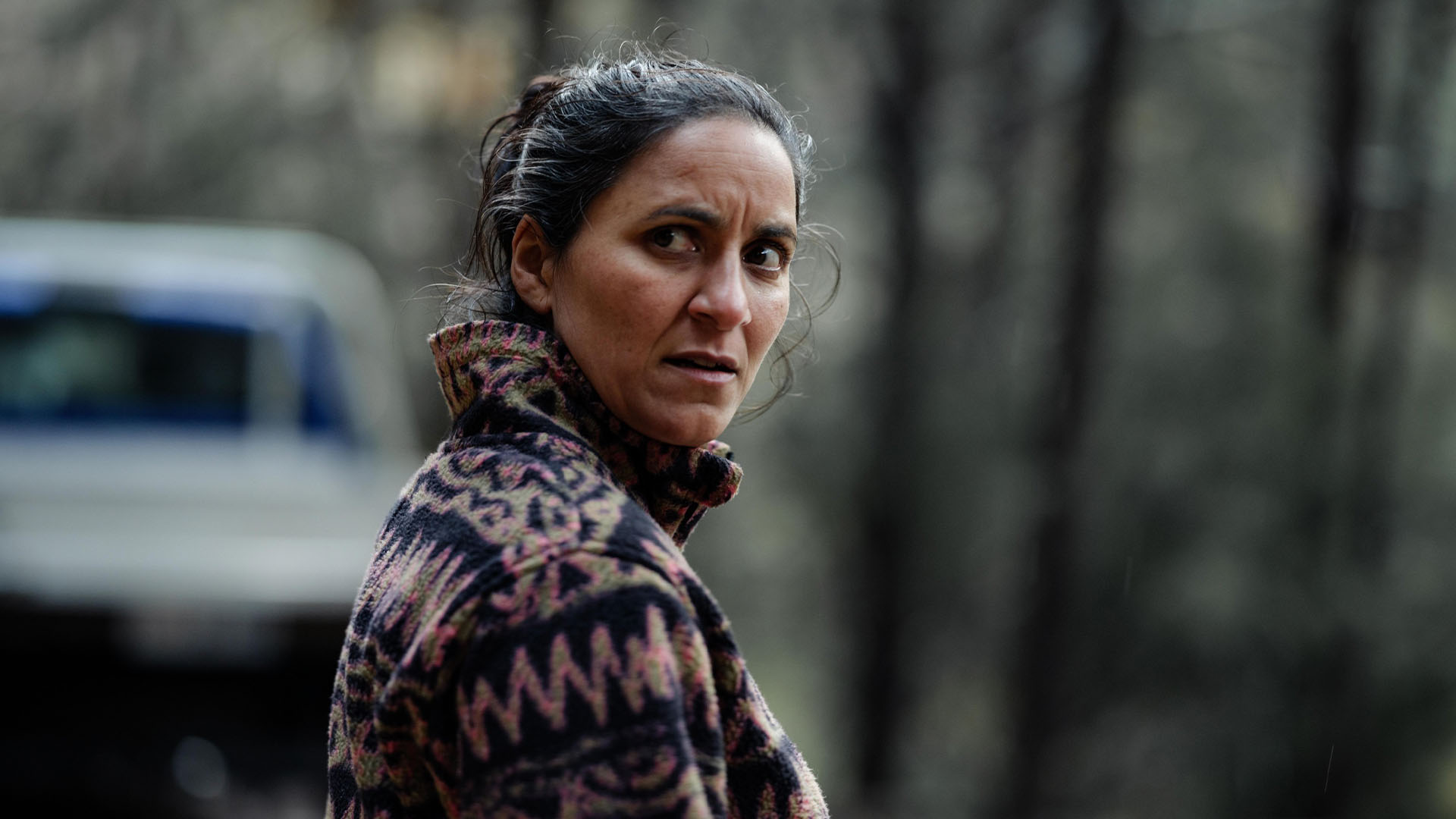
While a few shows have used Tasmania as a backdrop for its brooding mists and ancient landscapes (see: Tasmanian Gothic), Deadloch sets itself apart by how it grounds so much of its drama in contemporary Tasmanian social dynamics.
Speaking about how gentrification and the cost of living have squeezed people out of the cities and into small towns like Deadloch, Sami says; “The Kates really wanted to explore the tension of that in this microcosm of Deadloch and that world of the woke mainlanders bringing their arts festivals and their wines and their cheeses, and then the old school, old money Deadloch… and then the bogan Deadloch.”
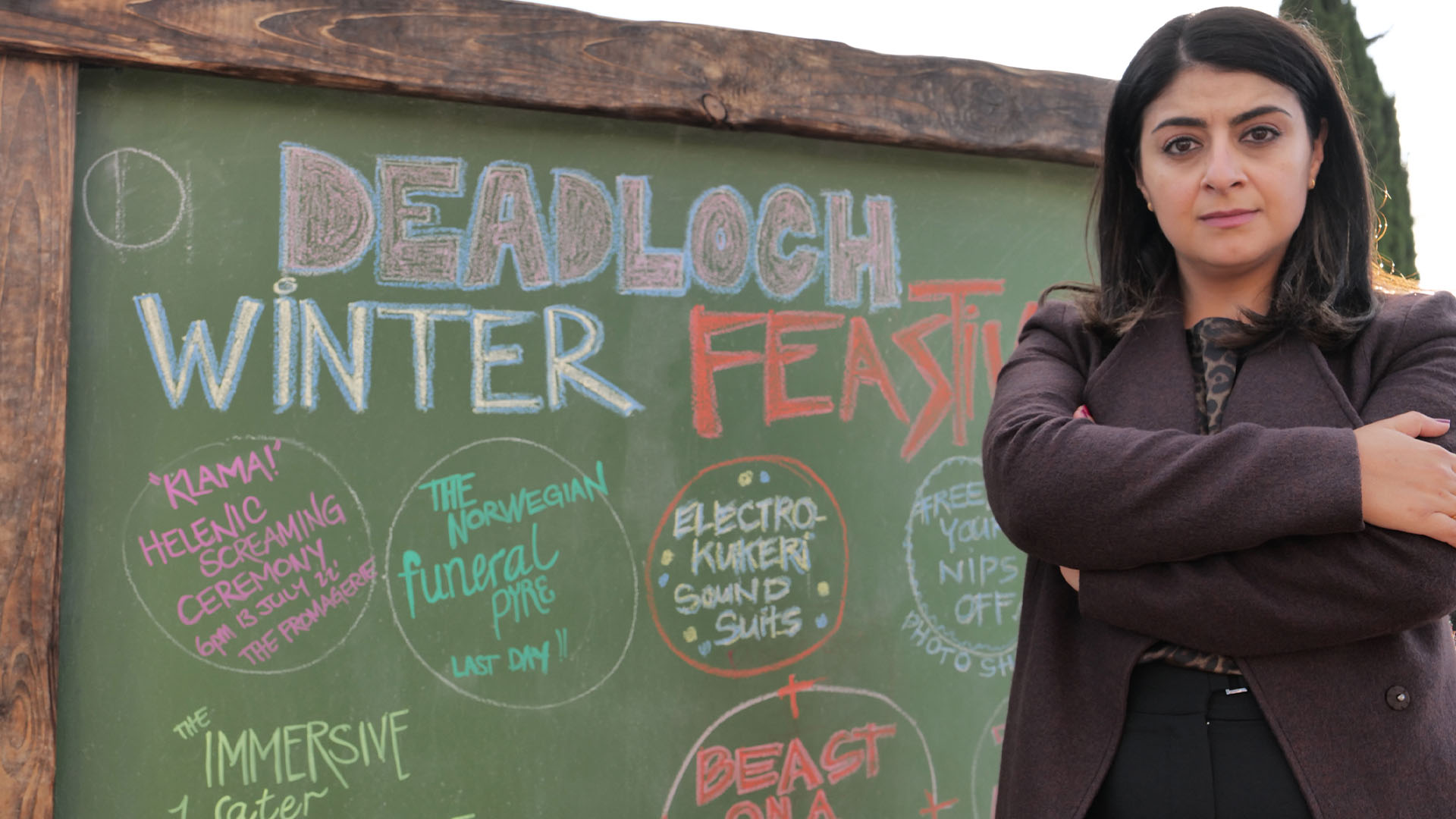
It’s a conflict the show mines for a lot of well-observed drama, and some cutting satire. “Everyone’s gonna be able to kind of recognise parts of themselves in these different people and [there’s] the question of ‘will these people be able to survive each other, as well as the killer?’”
But it’s not all arts fest luvvies and footy club hooligans, somehow this detective comedy originally envisioned as ‘funny Broadchurch’ is one of the gayest shows on TV—both in cast and characters.
I asked Madeleine what it was like working on set with so many other queer actors; “I remember really early on,” she says “I think we’d had like a gun training, it was like myself, Nina Oyama, Tom Ballard, and Kate Box. We kinda looked around at each other and were like, ‘we’re in the top-billed cast and we’re all queer!’ That’s never happened in any job I’ve ever been on before! There’s lots of little quiet revolutionary aspects of the show like that. It was exciting, and it just lends an authenticity to the storytelling as well.”
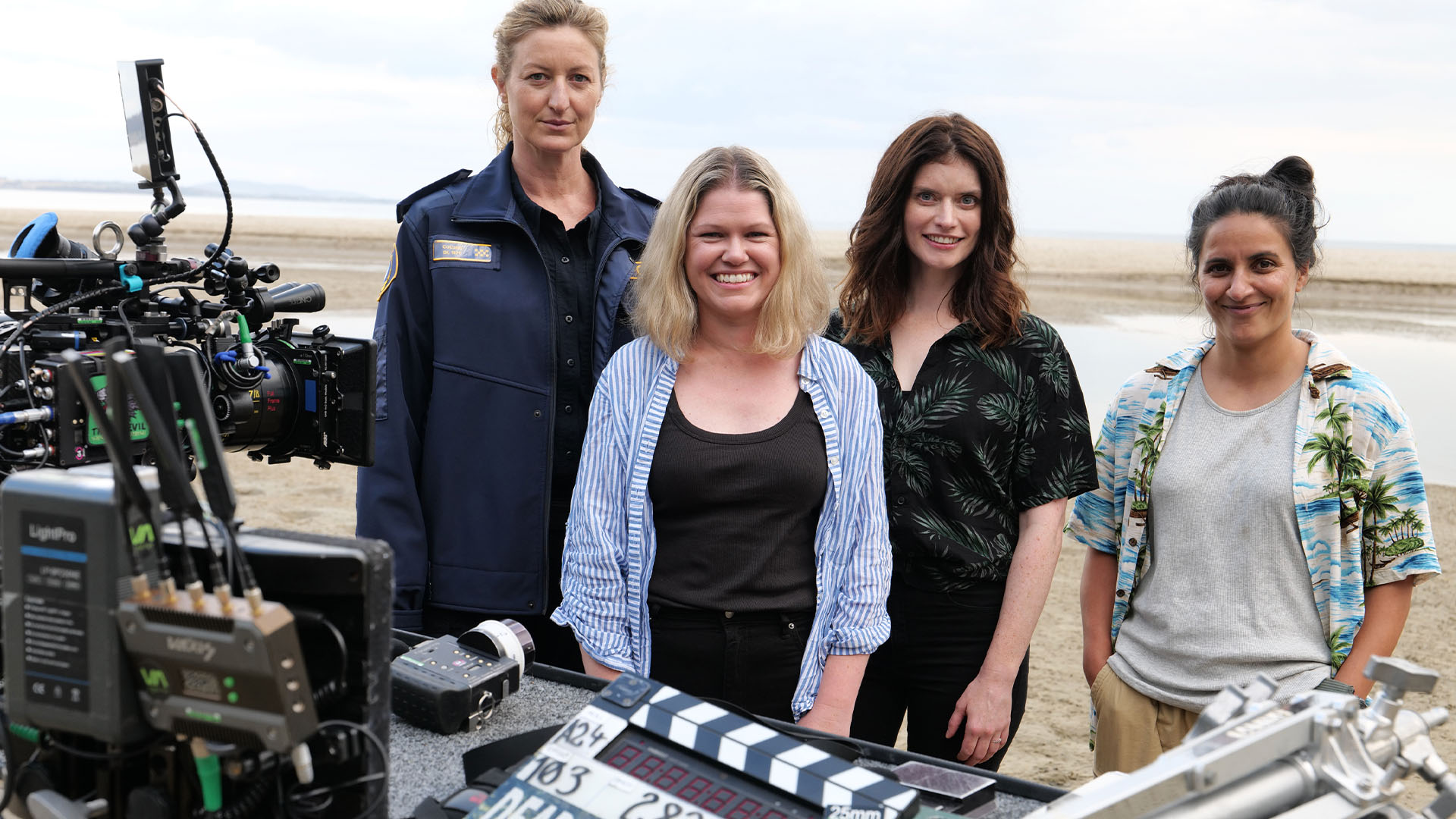
Crime dramas don’t have a great track record on dealing with queerness (not to mention race or gender) and digging into and subverting some of detective fiction’s slimier tropes is central to Deadloch’s story.
“When you’re dealing with crime, it does eventually get dark, and there are a lot of issues that need to be treated in such a way, because they’re important, and you gotta be clear on what you’re saying,” Sami says. “What I love about this show is that it manages to straddle all of those things in a sensitive way. It’s able to be funny, it’s able to be crass, it’s able to be silly, and then when it needs to be, it’s able to go, yeah, the world is pretty fucked, and this is why, and this is how, and let’s talk about it.”
Deadloch really feels like something special. It’s not often a piece of television manages to be laugh-out-loud funny, a ripping detective yarn, and a surprisingly poignant portrait of a complex community. For Madeleine Sami, the mix the Kates have created hits a perfect sweet spot. “I love a happy-sad song, I love a funny-dark comedy that can also just kind of pull the carpet from under you when you least expect it and make you think about the world in a different way. Yeah.”



